Sports photography is probably the thing that excites me most about using my DSLR. I experience this child-like glee when I manage to steal that perfect, unexpected split-second of time that I missed with the naked eye, like this ball flying right behind my son’s head:
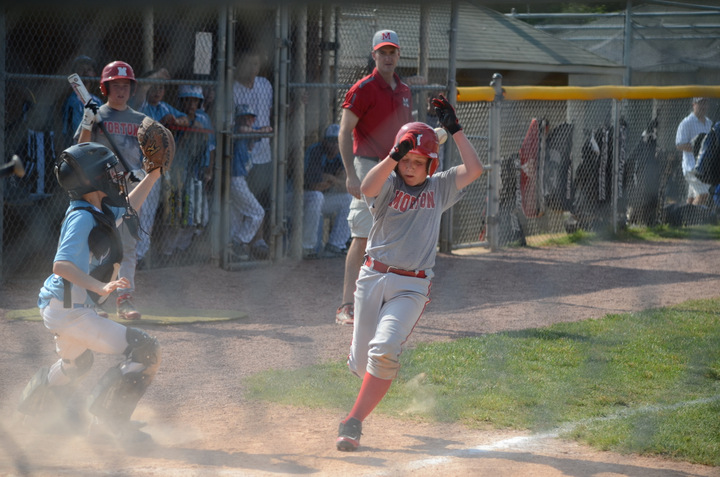
Nikon D7000 | 55-300mm lens @ 102mm | f/4.8 | 1/2000 | ISO 400
Sports photography presents a challenge because you have little control over your subject, but here are a few tips to make you more successful:
Know the Game
After three summers of photographing my son’s baseball team, I know when a batter is going to swing and I anticipate who is going to get to field the ball and play some D. If your child plays football, know the kinds of plays the coach calls. If you have a cheerleader, learn those routines. Think about dramatic shots: a runner crossing the finish line, a cheerleader flying through the air, a base runner sliding into home, a goalie saving a goal, a receiver catching a ball, a jump shot, or a spike. If you know the game (and your kid/subject) you can better anticipate these things. In this shot, my son was playing third and the batter had already squared to bunt once. I figured it would happen again, so I just focused on my son and waited for him to run in for coverage:
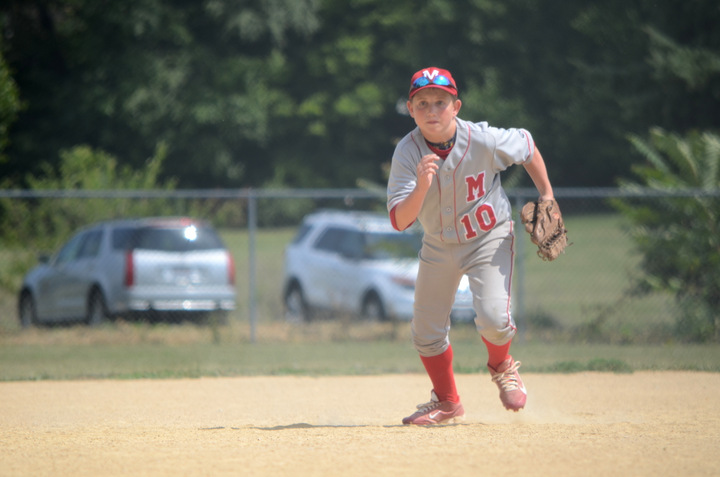
Nikon D7000 | 55-300mm lens @ 300mm | f/5.6 | 1/640 | ISO 200
Position Yourself to Get the Shot You Want
I used to be shy and embarrassed about where I would sit at my kids’ games. I am so over that. If you have a runner, decide if you want shots from the side to capture strides, or do you want to be at the finish line to capture the concentration on their face? Do you want ground-level, front-line type photos, or more clean photos from up in the bleachers? If you plan ahead of time, you are going to be much happier with the photos you create.
Experiment with different perspectives. Notice how much more dramatic the toss of the cheerleader is from down low rather than up in the bleachers:
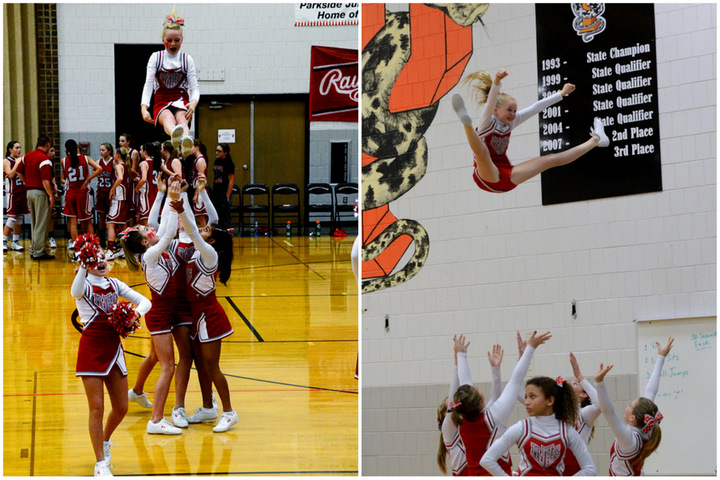
Left photo: Nikon D7000 | 55-300mm lens @ 65mm | f/5.3 | 1/200 | ISO 2000
Right photo: Nikon D7000 | 50mm lens @ 50mm | f/2.5 | 1/640 | ISO 2000
Find the Right Settings
Many people believe in shooting in Shutter Speed Priority to freeze action, but I choose Aperture Priority most of the time. I do this for two reasons: First, if the aperture is wide open, you are going to get the fastest possible shutter speed for those lighting conditions anyway. Second, there are usually a million distractions around your subject. Having your aperture as wide as possible blurs that background somewhat, helping to keep the focus where it should be. (Also, it blurs out that annoying fence. “They” say not to shoot through a fence. Sometimes that’s impossible, as seen in the photo below.)
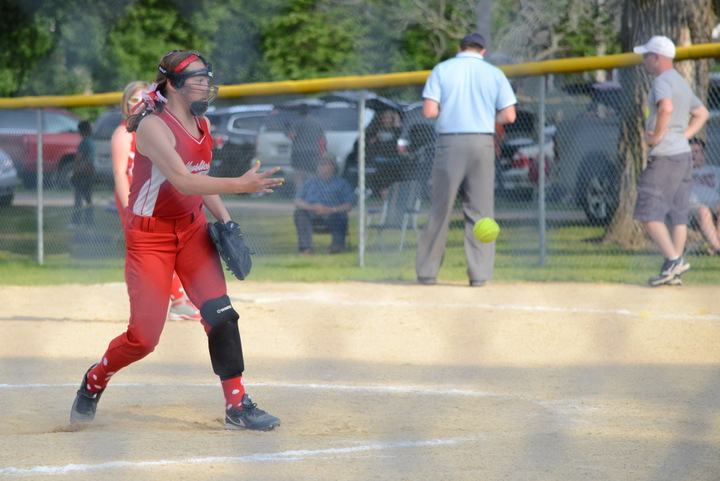
Nikon D7000 | 55-300mm lens @ 116mm | f/4.8 | 1/2500 | ISO 640
Take Action
Grab your child’s game or practice schedule, choose a date, and experiment, experiment, experiment!
Next time, we will talk about lighting issues, which are often out of your control.

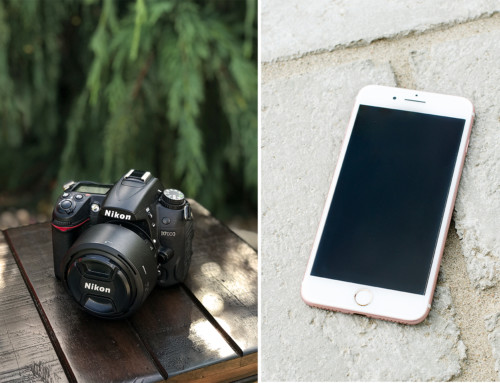
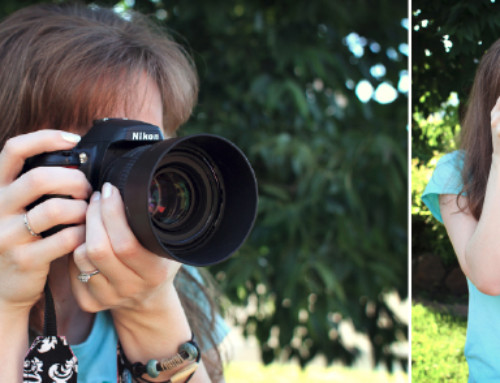
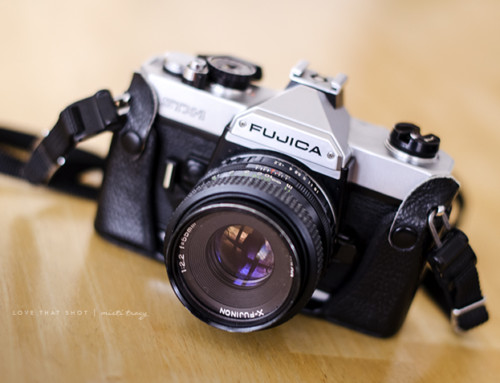
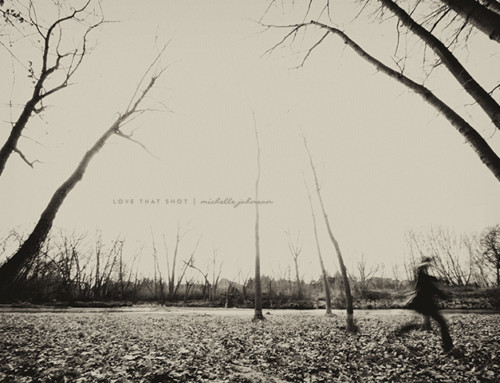
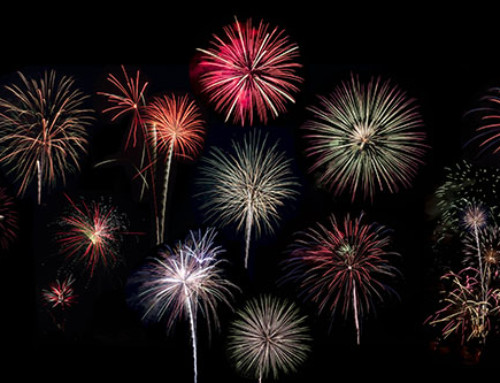
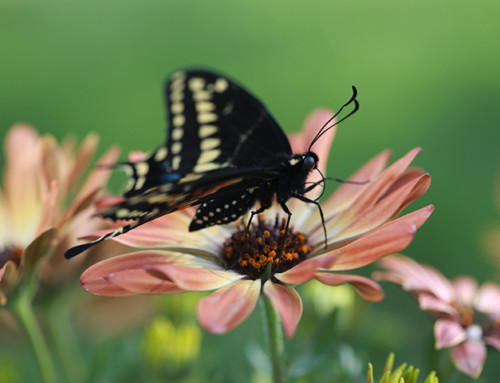

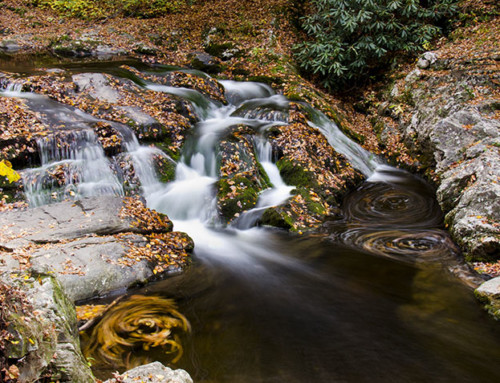
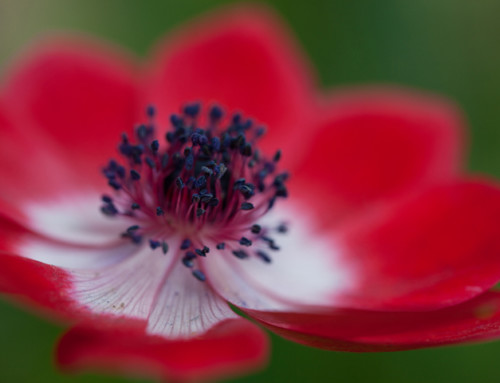
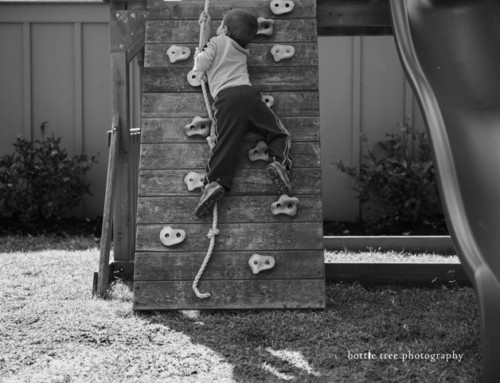
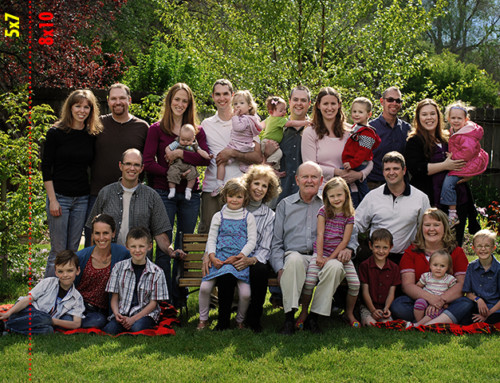
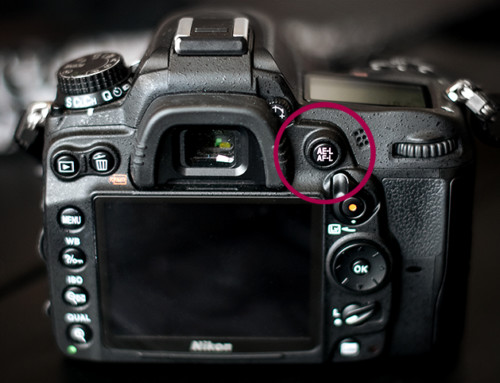
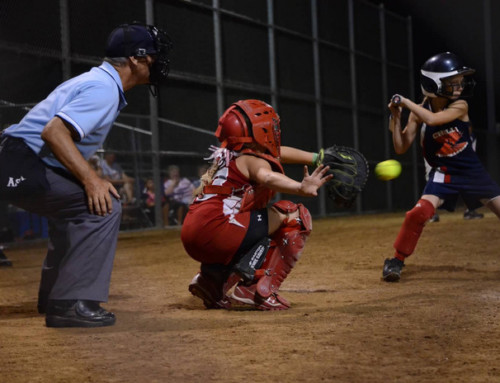

For sports, change your focus points to center only, shoot in servo focus mode to stay focused when following action. I like to shoot aperture preferred then use ISO to make sure I’m getting enough shutter speed to stop the action (500 minimum). As the article states, shoot with wide open aperture to decrease your DOF so your subject is in focus but the uncontrollable surrounding distractions aren’t. You can shoot through fences if need be and if you’re careful you can avoid the fence from being visible. The secret is to get right up to the fence, the front of your lens touching or almost touching the fence.